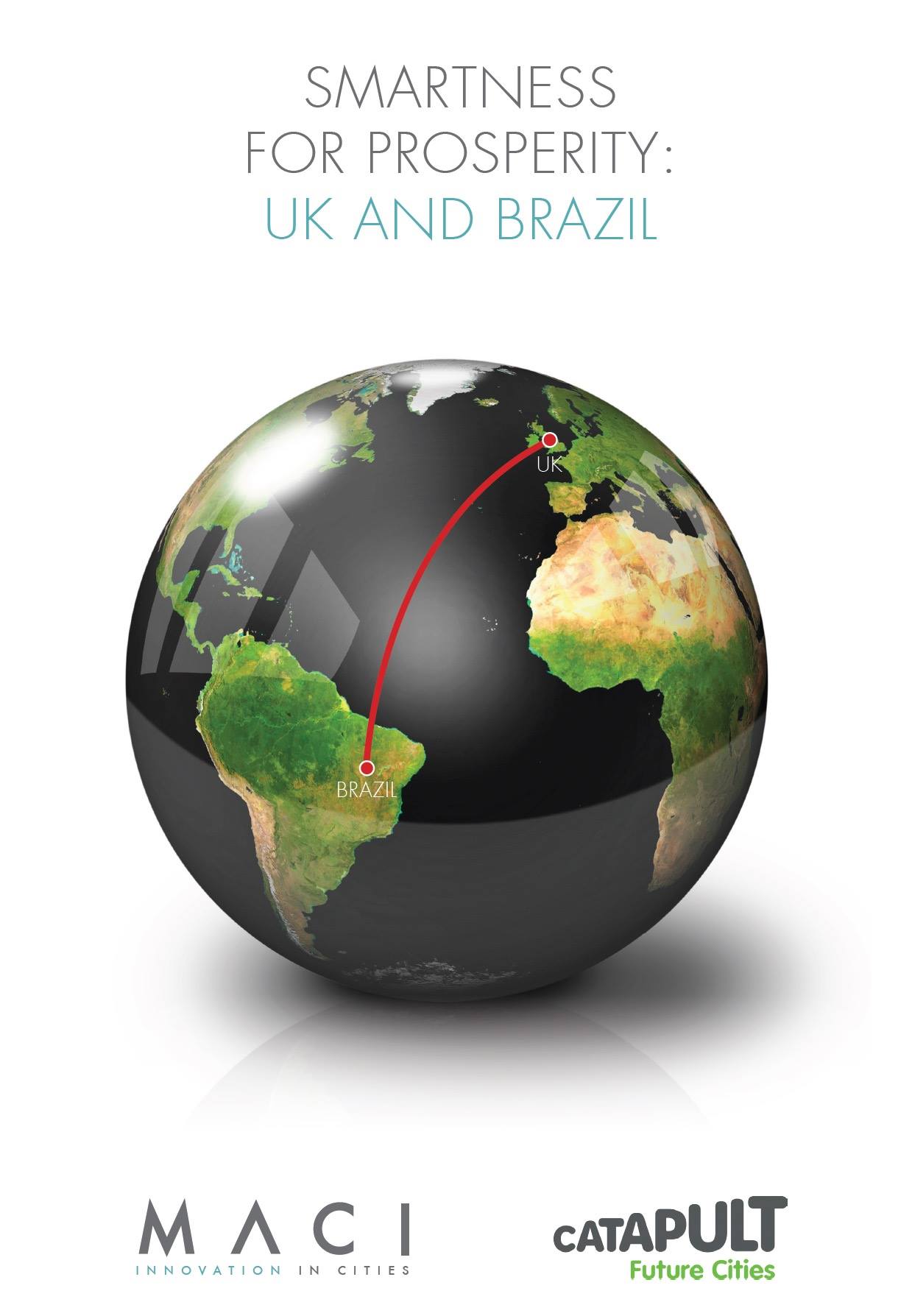
12 May ‘Smartness for Prosperity: UK & Brazil’ policy report commissioned by the Future Cities Catapult
This policy report has been commissioned by the Future Cites Catapult as a collaborative undertaking with Dr Calzada, MACI Innovations and Translokal publishing to research the topic of Smart Infrastructure in nominated Cities in both the UK and Brazil.
Future Cities Catapult is a global centre of excellence for urban innovation and as part of this Collaborative Approach Research & Development work is being delivered to support the UK government Prosperity Fund.
The smart city landscape is broad and complex in nature. And even though there’s an unmistakable need to make urban environments smarter and more livable, the great majority of cities have to deal with a history of ‘siloed’ approaches, blocking a more integrated and holistic way of approaching urban challenges.
The study commences an explanation and demonstration of the approach taken on how to structure the study and case studies themselves and proceeds to an in-depth review on how both the UK and Brazilian cities such as Bristol, Manchester, Newcastle, Leeds, Belfast Sau Paulo, Brasilia and Belo Horizonte have been addressing the smart city theme, by looking into the way they approached the challenge locally.
This research is supported by expert contrast accounts and targeted interviews with key stakeholders in the smart cities arena, to gather insights on methodologies, current practices, and the impact of these approaches in the urban environment.
The final section of the policy explores a fresh new concept of how UK approaches can be applied to Brazilian Cities and develops a methodology for approaching change. Successful smart city change programmes must first look to the nature of the recipient city or urban environment to understand the need, issues and opportunities. These are often found in the very essence of the place; its urban culture, nation tradition, heritage, and political landscape as well as any economic drivers/ aspirations, technological capabilities and the dynamics of society itself.
The emphasis on smart cities and technology must be firmly set in the context of the “place”. With this in mind, very rarely will single solutions be found and or developed that can deliver effective change that is applicable to all environments nationally or regionally and therefore a city approach must be adopted.
Smartness must first start with the city not the “smart” and the key objective of smartness must be to foster prosperity. Throughout this policy document these concepts have been critically assessed and developed from first principles into models that define the nature of the thinking and structuring of a successful approach.
The core principles are based on viewing these concepts as “sustainable economic hardware” and “sustainable social software” as often opposing yet critically linked drivers.
The defining output of combining these core principles is that “#Smartness4Prosperity” should be the desired outcome of developing and implementing smart infrastructure strategies not only in Brazil, but in the UK.


Sorry, the comment form is closed at this time.